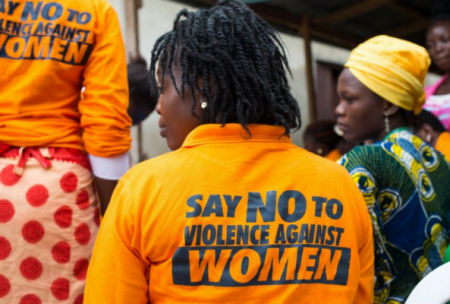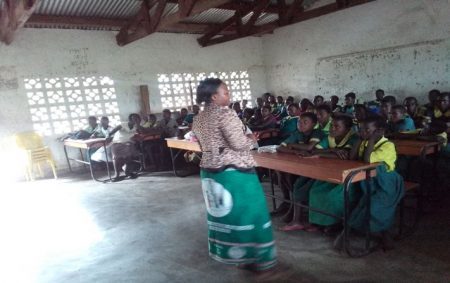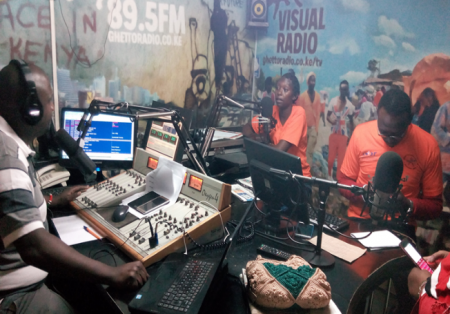
Highlights from the 2016 campaign on 16 Days of Activism against Gender-based violence
By Rose Buabeng and Belinda Amankwah
We live in a world increasingly shaped by mobile and online communication technologies. African uptake and participation in social media and mobile technology platforms continues to grow as advancements in technology and accessibility of the Internet perpetuate cyber harassment mostly among the youth. What does this mean for African women and girls? As the 2017 16 Days of Activism Against Gender Based Violence is approaching, as a feminist organization who supports women’s rights organisations to undertake innovative initiatives to prevent Gender Based Violence (GBV), AWDF would like to throw more light on the focus of our support for the 16 Days of Activism with grants and how it impacted girls, women and communities in Africa.
For the 16 Days campaign in 2016, AWDF supported 17 young women’s rights organizations in 12 countries across Africa with grants of $1,000 per organisation to embark on a campaign using ICT to educate communities on the causes and prevention of GBV, and also explore channels for redress for survivors.
The selected organisations engaged in different activities employing various ICT tools such as radio, mobile phone, internet, television among others to educate their communities on the causes and prevention of GBV. Some of the activities undertaken included development of mobile sms code, Facebook and WhatsApp interactive platforms and radio talk shows. They also carried out online and offline sensitisation of women through educative talks on GBV within local communities, organised group coaching on use of mobile phones to report cases of VAW and Edutainment crusade using cultural animation. STEMbees Organization in Ghana organised a workshop on cyber bullying, sexting and digital safety, where participants were taught how to change privacy settings on WhatsApp such as blocking contacts and changing from public to “only me” privacy settings to ensure the safety of their information.
Female Students Network Trust (FSN) in Zimbabwe; another grantee, commemorated the 16 Days of Activism against GBV campaign (# stopcyberharassment) with a march in Harare by gathering 100 students and stakeholders from various institutions within the city, who play a pivotal role in the dissemination of information on cyber harassment to the student community and the society as a whole.
The organisations that we supported adopted different strategies to reach their targets with the message on the causes and prevention of GBV. In addition to the ICT tools, some organizations also used community fora, drama, counseling, outreaches and peer to peer outreach to engage wider audience.
The campaign greatly stimulated and brought to the limelight issues of cyber-harassment and online abuse of women especially young women and girls. This was extensively deliberated on by key stakeholders and local authorities within targeted project areas. Female Municipal Councillors of target municipality like Ndu of Cameroon were motivated by the project to deliberate for the first time on GBV within the December 2016 council session and how to address such issues.
The Uganda Media Women’s Association also asserted that the campaign was an eye-opener to the organisation on the need to raise awareness about online abuse which is a new kind violence and abuse happening especially to young people in Uganda but not being given priority yet and is gradually gaining ground.
The campaign also saw the increase in women participation in debates on GBV. Over 6 cases were reported in the WhatsApp group formed during the campaign by YWCAA, Kenya.


Again, Women Empowerment Group (WEG) in Kenya developed a GBV situation analysis in Uasin-Gishu County which outlined GBV prevalence situation in the region for future advocacy to address the situation.
Through AWDF’s support, the organisations were able to reach out to about 4500 direct beneficiaries resulting in massive awareness on the causes and prevention of GBV. Most of the projects also targeted young women who were trained through various channels to understand the different forms of online gender based violence, how it occurs and the measures to take to protect oneself from any form of online gender based violence.
